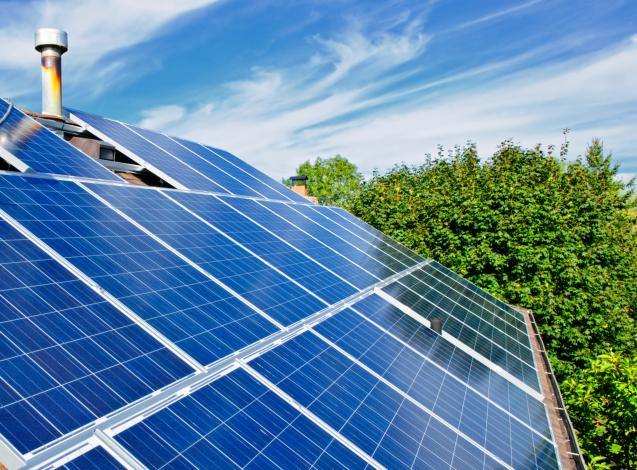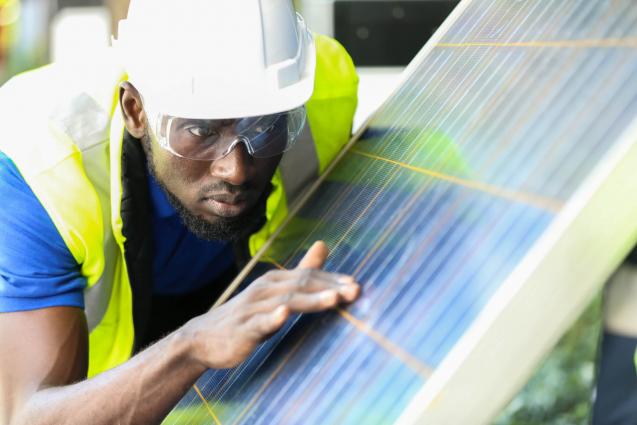
Achieving Energy Efficiency: Strategies to Cut Down Your Electric Costs
Understanding the Concept of Energy Efficiency
Energy efficiency is using less energy to perform the same task, eliminating energy waste. This concept is vital from both an environmental and economic standpoint. On the environmental front, energy efficiency reduces the strain on natural resources and lowers greenhouse gas emissions. Economically, it leads to substantial savings on electric bills.
Several myths surround energy saving, such as the belief that leaving electronics on standby mode saves energy or that using heating equipment minimally makes a significant difference. Contrary to these myths, energy efficiency involves well-coordinated efforts and the use of efficient technologies.
Consumers can significantly lower their electric costs by adopting energy-efficient practices and appliances. Energy-efficient devices ensure that less energy is consumed, thereby reducing the amount you pay for electricity and contributing to a healthier planet.
Energy Audit: The First Step Towards Energy Efficiency
An energy audit is essential in identifying areas where energy is wasted. It involves thoroughly evaluating your home or business to determine how energy is used and where it can be conserved.
Conducting an energy audit can reveal surprising sources of energy waste, such as drafty windows, inefficient appliances, or outdated lighting. The process can be done professionally or through DIY using available tools and resources.
For a professional energy audit, experts assess various systems in your home and provide a detailed report on improvements you can make. On the other hand, DIY energy audits involve examining insulation, checking for leaks, and inspecting lighting and appliances. Regardless of the method, the goal is to identify inefficiencies and suggest practical changes.
Implementing Energy Efficient Appliances and Systems
Switching to energy-efficient appliances is a direct way to reduce electricity costs. Appliances rated by ENERGY STAR, a trusted mark for energy efficiency, use about 10% to 50% less energy and water than their standard counterparts.
For example, an ENERGY STAR-rated refrigerator can use substantially less energy than models that aren't certified. Although energy-efficient appliances might have a higher upfront cost, the savings on energy bills over time make them an excellent long-term investment.
When choosing energy-efficient appliances, consider factors like energy consumption, size, and utility. Additionally, maintaining appliances by regularly cleaning filters and ensuring they run efficiently can reduce overall energy usage.
Practical Energy-Efficient Habits and Lifestyle Adjustments
Energy wastage often results from small yet cumulative habits in daily life. Simple actions like turning off lights when not in use, unplugging devices, and using natural lighting can significantly reduce energy consumption.
Adjusting the settings on your Heating, Ventilation, and Air Conditioning (HVAC) systems can also lead to considerable savings. Setting the thermostat to an optimal temperature, using ceiling fans, and ensuring proper insulation can enhance energy efficiency.
Embracing habits like using cold water for laundry, air-drying clothes, and opting for short showers instead of baths can also make a noticeable difference. These adjustments are not necessarily drastic but can significantly reduce electric costs.
Factors Affecting Energy Efficiency and Electric Costs
Several factors can influence how energy-efficient a home is and the resultant electric costs. The geographical location and weather conditions play a significant role. For instance, homes in cooler climates may require more heating, impacting energy use.
The size and design of your home also matter. Larger homes with poor insulation typically consume more energy, while well-designed, energy-efficient homes can maintain comfortable temperatures with less energy.
Additionally, the number of occupants in a home affects energy consumption. More people mean more devices, electronics, and heating or cooling needs. Lastly, lifestyle choices and habits of the occupants play a crucial role in determining energy efficiency. Adopting an energy-conscious lifestyle can drastically reduce energy consumption and related costs.
Conclusion
Achieving energy efficiency isn't just a trend but a necessity in today's world, marked by rising electricity costs. By understanding and implementing energy-efficient strategies, such as conducting energy audits, using energy-efficient appliances, and adopting practical habits, households and businesses can reduce their electric bills and environmental footprint.
Energy efficiency begins with small steps. Evaluating and adjusting current energy use patterns can lead to substantial long-term benefits. So, it's time to take action. Share your own energy-saving tips or strategies and contribute to a more energy-efficient community.



